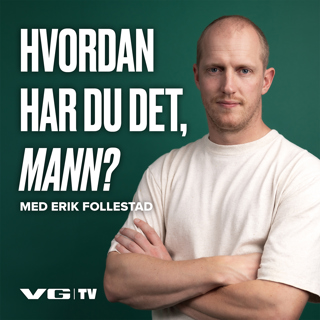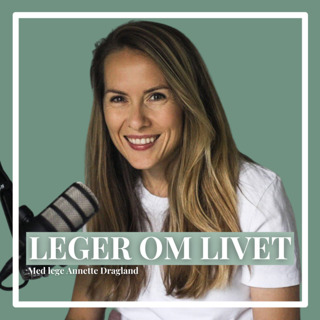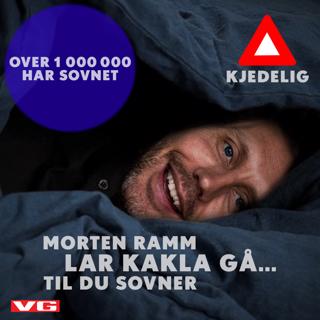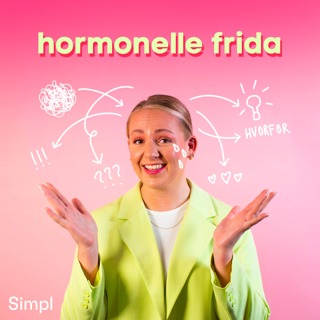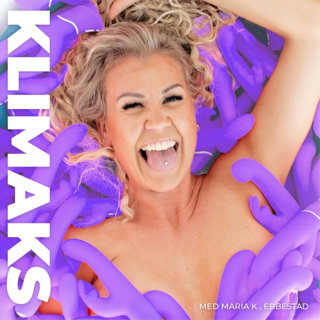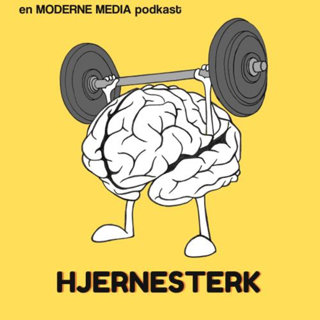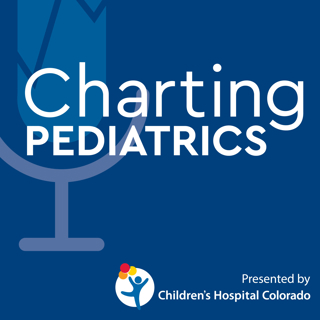
Turning Tragedy into Triumph
When you work in neonatology, you are surrounded by babies. You’re regularly meeting new parents in the Neonatal Intensive Care Unit, some who are living the best days of their lives, and others who are experiencing the very worst. But as a doctor, you never expect to become the patient. We go beyond the white coat in this episode with a story of tragedy and personal discovery from Laurie Sherlock, MD, that changed how she interacts with her patients and practices medicine. “I’ve been gifted through the accident and my son’s death. I’ve been gifted so much compassion for what our families are going through. I think my bandwidth is so much higher because it’s so easy for me to put myself in their shoes,” says Dr. Sherlock. Dr. Sherlock specializes in neonatal and perinatal pediatric medicine at Children’s Hospital Colorado and is an assistant professor of pediatrics and neonatology at the University of Colorado School of Medicine. Mostly importantly, she is a survivor who is using her own narrative to help others. Some highlights from this episode include: Dr. Sherlock’s personal story and the impact it’s had on her career Using personal experience to be a better doctor Tapping into compassion at the bedside Advice for patients and families experiencing tragedy For more information on Children’s Colorado, visit: childrenscolorado.org.
23 Apr 202428min

Spine Surgery Innovations: Advancing Treatment with Technology
Innovations and techniques to enhance spinal surgical care, and support patient- centric outcomes, have made big strides in the last decade. Technology like surgical robots, 3D printed models customized to the patient, and a new procedure called vertebral body tethering are just a few examples of the many incredible advancements. Two leading experts on scoliosis surgery at Children’s Hospital Colorado join us to discuss these impressive changes and how they are impacting patient care. Mark Erickson, MD, is the medical director of the Children’s Hospital Colorado Spine Program, as well as a specialist in orthopedic surgery. He’s also a professor of pediatrics at the University of Colorado School of Medicine. Sumeet Garg, MD, a pediatric orthopedic specialist, is the quality and safety director for the Spine Program, as well an associate professor at the University of Colorado School of Medicine. Some highlights from this episode include: An orthopedic surgeon’s approach to spinal surgery and how it’s evolved over time How surgery can improve a patient’s quality of life A look at new, customized patient approaches How the use of robotics is advancing treatment What’s on the horizon in spine surgery innovation For more information on Children’s Colorado, visit: childrenscolorado.org.
16 Apr 202429min

The Lowdown on Tongue Ties: Breaking Down Fact Versus Fiction
When babies enter the world, there’s a plethora of diagnoses providers need to look out for. Some are simple fixes, while others are a bit more complicated. When parents take their kids home, how should they know what to keep an eye out for? In this episode, we explore one potential diagnosis for an infant: tongue ties. How can you tell if a baby has one, and if they do, when should it be fixed? Looking at the concerns and consequences of tongue ties is important in making a decision on how to treat it. To provide guidance in making these decisions, Soham Roy, MD, is our guest for this episode. Dr. Roy specializes in pediatric otolaryngology at Children’s Hospital Colorado, and he’s a visiting professor of otolaryngology at the University of Colorado School of Medicine. Some highlights from this episode include: How to identify a tongue tie and variability in diagnoses Why tongue ties are controversial Identifying fact versus fiction in understanding tongue ties The upsides and downsides of the tongue tie procedure How providers can learn more For more information on Children’s Colorado, visit: childrenscolorado.org.
9 Apr 202428min

Care for Cleft Lip and Palate: The Commitment Spanning a Patient’s Lifetime
The care of children with cleft lip and palate spans an entire lifetime. It requires methodical care with a multidisciplinary team, and a special emphasis on the family. Integration with a child’s pediatrician, medical home and their loved ones is key. While the oral cleft is the most common craniofacial malformation in a newborn, the three main types differ vastly. We are in for a treat with the guest for this episode. We are joined by a gifted plastic surgeon who has traveled the world to perform these life-changing surgeries and bring smiles to everyone involved. Phuong Nguyen, MD, specializes in plastic and reconstructive surgery here at Children’s Hospital Colorado. In addition, he is the associate vice chair of global surgery, chief of plastic surgery, co-director of the cleft lip and palate program and a professor of surgery at the University of Colorado School of Medicine. Some highlights from this episode include: Prevalence and diagnosis of cleft lip and palate The role of the pediatrician or PCP throughout the lifespan of these patients Understanding if treatment is unique per patient Global impact of specialists, like Dr. Nguyen, traveling to treat patients For more information on Children’s Colorado, visit: childrenscolorado.org
2 Apr 202431min

A Solution to Sickle Cell: New Gene Editing Therapy Could Lead to a Pain Free Life
You’ve likely heard of CRISPR, the comprehensive gene editing technology that emerged in the 2010s and has since revolutionized biological research. Additionally, the medical community has long been using the concept of gene therapy. What’s new is that both approaches have now successfully been harnessed for the treatment of human disease. In December 2023, the FDA approved two therapies for the treatment of sickle cell disease; one utilizing CRISPR technology and the other using a gene transfer therapy approach. These therapies now have the opportunity to change the life course of this terrible disease. Our guest for this episode is Christopher McKinney, MD, who specializes in pediatric hematology here at Children’s Hospital Colorado. Dr. McKinney has been the hospital’s site principal investigator in some of the clinical trials that are contributing to these new sickle cell therapies, and he is an assistant professor of pediatrics at the University of Colorado School of Medicine. Some highlights from this episode include: How these treatments work for diseases like sickle cell What we know about the effectiveness of these therapies thus far Important side effects and risks to take into consideration Regardless of FDA approval, what barriers are in place Powerful patient examples For more information on Children’s Colorado, visit: childrenscolorado.org
26 Mar 202429min

We’ve Hit 2 Million Lifetime Downloads! 3 Million, Here We Come
In its 7th season, Charting Pediatrics has hit 2 million lifetime downloads! What an accomplishment. Our podcast team wants to thank each of you, our listeners, for tuning in each week to learn about the latest and greatest in pediatric healthcare. This accomplishment would not be possible without each of you, and we are thrilled to have you on this journey. 2024 has a lot of unique opportunities in store. Get ready for more content, new ideas, and further educational opportunities. In this special episode, our hosts, David Brumbaugh, MD, Alison Brent, MD, and Dan Nicklas, MD, reflect on the growth of this podcast and the advancements that have happened since its inception. “And I am 100% convinced that we are, right now, in what will eventually be referred to as a golden era of pediatric medicine in terms of developing new treatments,” Dr. Brumbaugh says. Here’s to 2 million more lifetime downloads, with listeners who are changing the realm of pediatric medicine every day. Thank you for all that you do! For more information on Children’s Colorado, visit: childrenscolorado.org
21 Mar 20247min

Advocating for Health Successes: Filling Gaps with Patient-Family Engagement
Children and their families need a healthcare system that serves them wholeheartedly. Having their unique needs prioritized creates an important opportunity for lifelong health and wellbeing. However, the current health system in our country and globally has massive gaps to fill, especially as it pertains to children of color. The medical community is focusing on preventative measures and connections between children, families, communities and the systems they interact with regularly. While large efforts are being made across the child healthcare field, there is strong agreement that child health transformation, with a focus on family -centered pediatric care, needs to be accelerated. At the forefront of this work is Hala Durrah, MTA, a patient-family engagement consultant and advocate. Joining us virtually from San Marcos California, she discusses her role on the advisory group of national experts in the pediatric field of accelerating child health transformation initiative. She also has professional experience as a national speaker who has served on a number of national committees. Beyond her professional accomplishments, this topic resonates with her much more personally. Her current work in patient-family-centered care stems from her experiences as a mother of a child who has undergone two liver transplants and a bone marrow transplant. “What I realized when I first knew my daughter was sick, was that this was going to be a journey that required me to be as fully knowledgeable and as fully engaged as possible to advocate for her,” Durrah says. Some highlights from this episode include: How providers and practices can partake in this work The importance of acknowledging patient-family engagement to best care for kids What gaps exist and how this method helps to fill them This episode is underwritten by Aegon Transamerica Foundation, a proud supporter of Charting Pediatrics and Children's Hospital Colorado. The Aegon Transamerica Foundation helps build a better world by committing to the improvement of wellness throughout their communities. Their partnership with Children's Colorado addresses the youth mental health crisis to help create a better mental health future for children. Thank you to Aegon Transamerica Foundation for investing in Children's Colorado. For more information on Children’s Colorado, visit: childrenscolorado.org
19 Mar 202434min

Mitigating Misinformation and Changing the Narrative: Allergies in the Media
Facts and fiction can overlap in movies and television. That’s especially prevalent in medical dramas where the details seem so real but often don’t portray the full picture. While the intention may be to create powerful entertainment, sometimes a storyline can misinform the viewer. Unrealistic circumstances, overexaggerated outcomes and the bending of scientific truth, create confusion. When it comes to food allergies, how a situation is handled can be the difference between a routine medical occurrence and a lifesaving episode. “This is where we see some really dramatic portrayals because you generate that emotional kind of connection and we see it both from how reactions are portrayed inappropriately or very severe consequences or frankly people make fun of food allergies a lot,” David Stukus, MD, says. In this episode, we dig into how portrayals in the media landscape can impact patient families in the medical community. We are joined by Dr. Stukus, who is otherwise known as the allergy kids doc on social media. Dr. Stukus is the director of the Food Allergy Treatment Center at Nationwide Children’s Hospital, as well as a professor of clinical pediatrics in the division of allergy and immunology. In addition, we have Vivian Hernandez-Trujillo, MD, with us. Dr. Hernandez-Trujillo is the director of the Division of Allergy and Immunology at Nicklaus Children’s Hospital, as well as a clinical professor of pediatrics at Florida International University Herbert Wertheim College of Medicine. These two doctors are at the forefront of important conversations for change. “I honestly think education is just important. Once we’re armed with accurate information, that’s powerful. I can speak as a patient, as a mom of two girls with food allergies, and as someone who is a physician for patients with food allergies, my cup is always half full,” Dr. Hernandez-Trujillo says. This episode was recorded at the 2023 American Academy of Pediatrics National Conference and Exhibition. Some highlights from this episode include: Common examples of allergy inaccuracies within media The narrative around nut allergies How we remove the stigma around allergies and change how they are portrayed Undoing outdated practices and updating our information For more information on Children’s Colorado, visit: childrenscolorado.org
12 Mar 202432min



